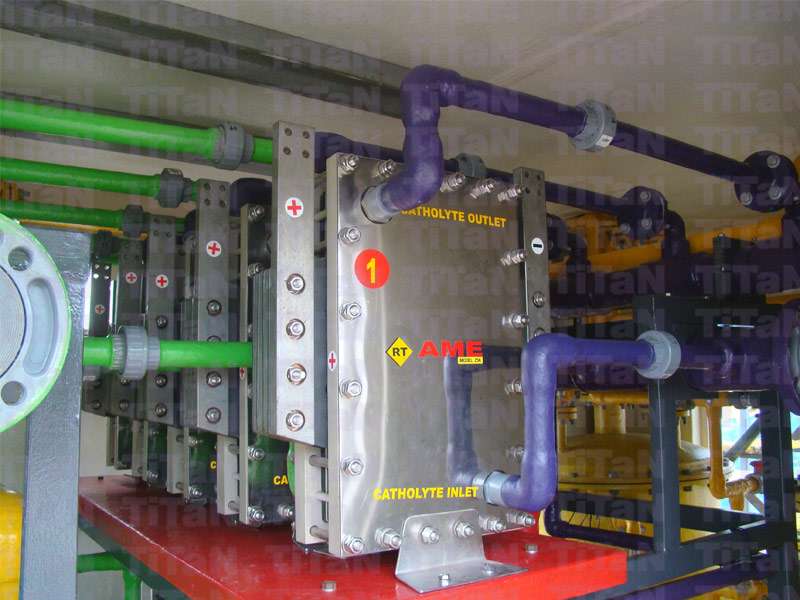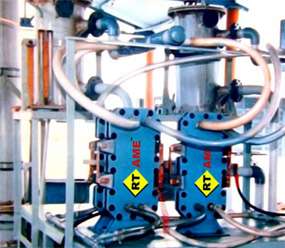RT EOS ELECTRO-ORGANIC-SYNTHESIS SYSTEM
RT EOS ELECTRO-ORGANIC-SYNTHESIS SYSTEM
Select, control and Improve organic processing
MODERN CHLOR-ALKALI PROCESS
Electro-organic-synthesis achieves electron-transfer-driven reactions selectively. The electron transfer leads to oxidation or reduction of the reactant in solution and the formation of a reactive intermediate. The products are formed by the reactions of these intermediates, usually in the electrolyte. The potential applied to the electrode determines the driving force for electron transfer and controls the extent and rate of electron transfer.

- Nitro Reduction
- Halogenation
- Methoxylation
- Acetoxylation
- Hydrogenation
- Carboxylation
- Coupling Reactions
- Acetamidation
- List Item
- Dehalogenation
- Cyanation

RT AME CHLOR ALKALI PLANT
Capacity Range
- Pilot Scale
- Pilot Scale
- Production Plant
Benefits
Noble Eco Systems can help companies to establish lab scale electro-organic-synthesis system for their requirements and designs, engineers pilot scale plants to run all tests. Based on pilot testing Noble Eco Systems engineers and supplies production units. The pilot plant plays a key role and when it comes to scale-up, Noble Eco Systems performs seamless development from lab to production at a single site – for a one-stop solution to your needs.
The main advantage of electro synthesis over an ordinary redox reaction is avoidance of the potential wasteful other half-reaction and the ability to precisely tune the required potential and protects the environment by minimizing the toxic waste component of effluent.
The advantages electrochemical organic syntheses are good reasons for industries to be aware of advances in electrochemical processing which selectively performs the following organic reactions.
